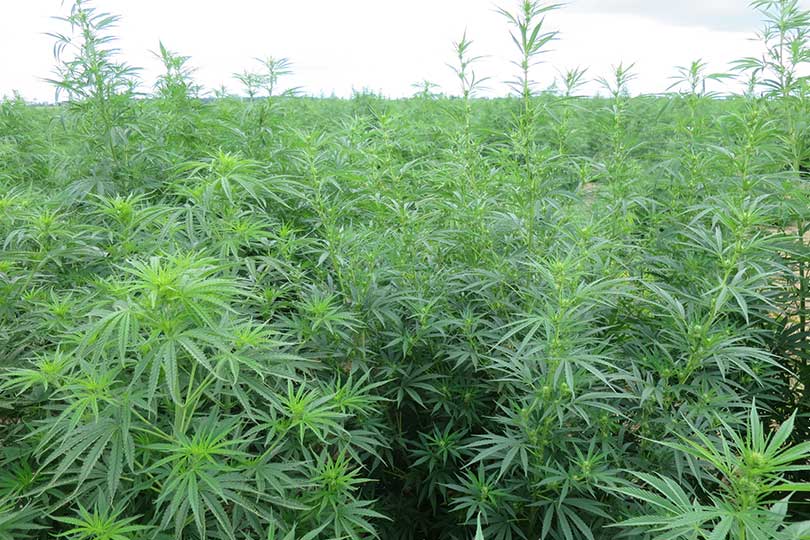By Jennifer Dorsett
Field Editor
Texas A&M AgriLife Extension Service will begin growth trials this spring to determine the viability and performance of different hemp varieties in portions of the Lone Star State.
Under the Texas A&M AgriLife Crop Testing Program, AgriLife Extension staff will plant and monitor hemp varieties for hemp cannabinoid (CBD), fiber and grain production qualities.
The self-supporting, fee-based crop testing program has offered public trials for wheat, grain sorghum, corn, sunflowers, soybeans and other crops for decades. Interested parties submit an entry form, seed and payment, then AgriLife grows and tests the submitted varieties and shares the resulting data.
“We are adding hemp testing to the program for 2020; however, because we are getting a later start than we wanted due to meeting licensing requirements, we will not test in South Texas this year,” Dr. Calvin Trostle, AgriLife Extension agronomist and statewide hemp specialist, said.
Irrigated fields will be planted and monitored at Plainview and San Angelo, while dryland crops will be planted at locations near Commerce and College Station. According to the entry form, trials will also be conducted in Corpus Christi and Weslaco in future years.
Identifying varieties with low THC content is a high priority. Trostle noted THC levels must remain at or below 0.3 percent, or the crop must be destroyed. Seed quality is the other key attribute researchers will be focusing on this year.
“This year will be a trial run in some ways as we prepare for broader statewide testing, including South Texas in 2021,” he said. “For now, we are emphasizing seed trials rather than transplants or clones, though we will consider those planting stocks if needed.”
Trostle added that long-term, he believes field agriculture hemp will move toward seeded production, which will significantly lower costs.
“With AgriLife’s eventual emphasis on certified Texas hemp seed, I think this will fix some of the concerns we hear about poor seed quality in other states,” he said.
Certified seed has higher germination rates, improved vigor and genetic purity over uncertified seed.
Variety testing is the next step in achieving sustainable and profitable Texas industrial hemp farming, AgriLife Extension Program Leader for the Department of Soil and Crop Sciences Dr. Larry Redmon said.
“Trial results for crops tested by Texas A&M AgriLife are used by farmers across Texas to make decisions on their planting seed,” Redmon said. “Our goal is that Texas hemp producers may enjoy the same type of information for their seed selection decisions.”
Completed entries for the program are due by May 12.
Questions about the hemp variety trials may be directed to Trostle at 806.723.8432 or by email at ctrostle@ag.tamu.edu.
More information about the crop testing program is available online at http://varietytesting.tamu.edu/hemp, and information on industrial hemp regulation in Texas is available from the Texas Department of Agriculture.

